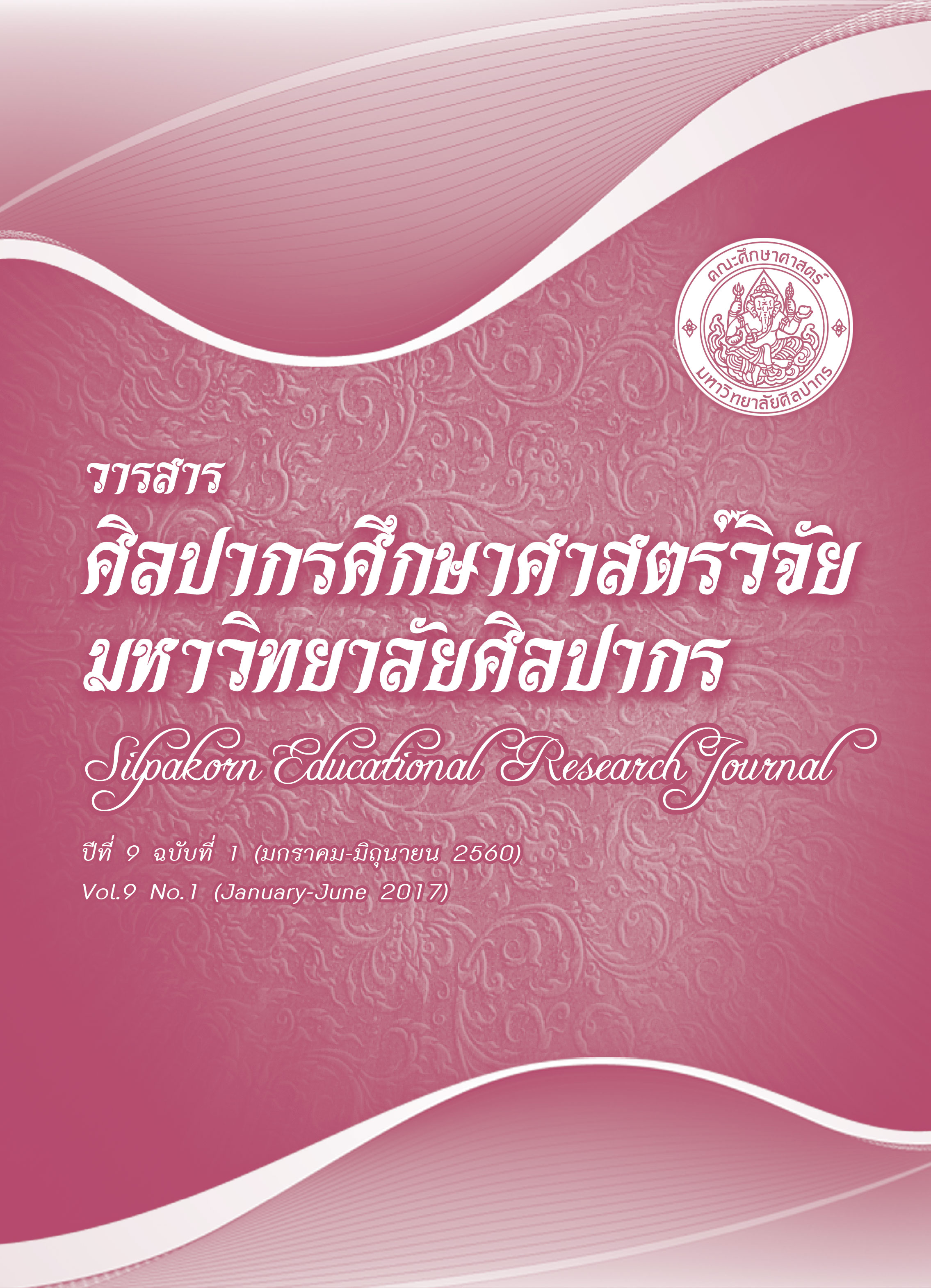การพัฒนารูปแบบและเครื่องมือการประเมินโครงการเพื่อพัฒนาสมรรถนะหลักของบุคลากรในสถาบันอุดมศึกษาเอกชน (The Development of Model and Tools for Staff’s Core Competency Development Project Evaluation in Private Higher Education Institutes)
คำสำคัญ:
term2บทคัดย่อ
Abstract
The purposes of this research were 1) to develop the project evaluation model of staff’s core competency development in private higher education institutes in 3 phases: before, during and after the project implementing and 2) to evaluate the quality of implementing the model in feasibility, utility, propriety, and accuracy standards. The research participants in constructing the project evaluation model phase consisted of 20 administrators and 10 experts; in testing the project evaluation model phase consisted of 20 administrators,70 faculties and 80 academic supporters in a private higher education in Sathorn District, Bangkok. Research instruments/techniques were documentary study, questionnaires, and group conference. The quantitative data were analyzed by percentage, mean, and standard deviation. The qualitative data were analyzed by contents analysis.
The research results were found that 1. The project evaluation model of staff’s core competency development in private higher education consisted of 1) the objective of evaluation was to provide information after implementing the staff’s core competency development project. 2) the objects of evaluation were the higher education institutes’ staff ‘s core competency that could be achieved the institution’s vision and mission 3) the methods of evaluation were proceeded by data collecting with HRD department staff and 4) the significant tools which were used in the project consisted of Actual and Expected Core Competency Questionnaire, Trainee’s Readiness Inventory, Training Situation Factor Survey, Training Knowledge Transfer Questionnaire, Training Product and Outcome Evaluation Form, and Core Competency Behavior Observation Forms. 2. The experts and HRD project staff accepted the quality of the model was appropriateness and feasibility to implement in higher education institutes. The information from the model was relevant to staff’s core competency and could be used for developing staff’s core competency according to Institute’s vision and mission. The model should have been continuously implemented in 3 phases: before, during and after the project implementing.
Keywords: Core Competency Development, Project Evaluation, Private Higher Education Institutes





